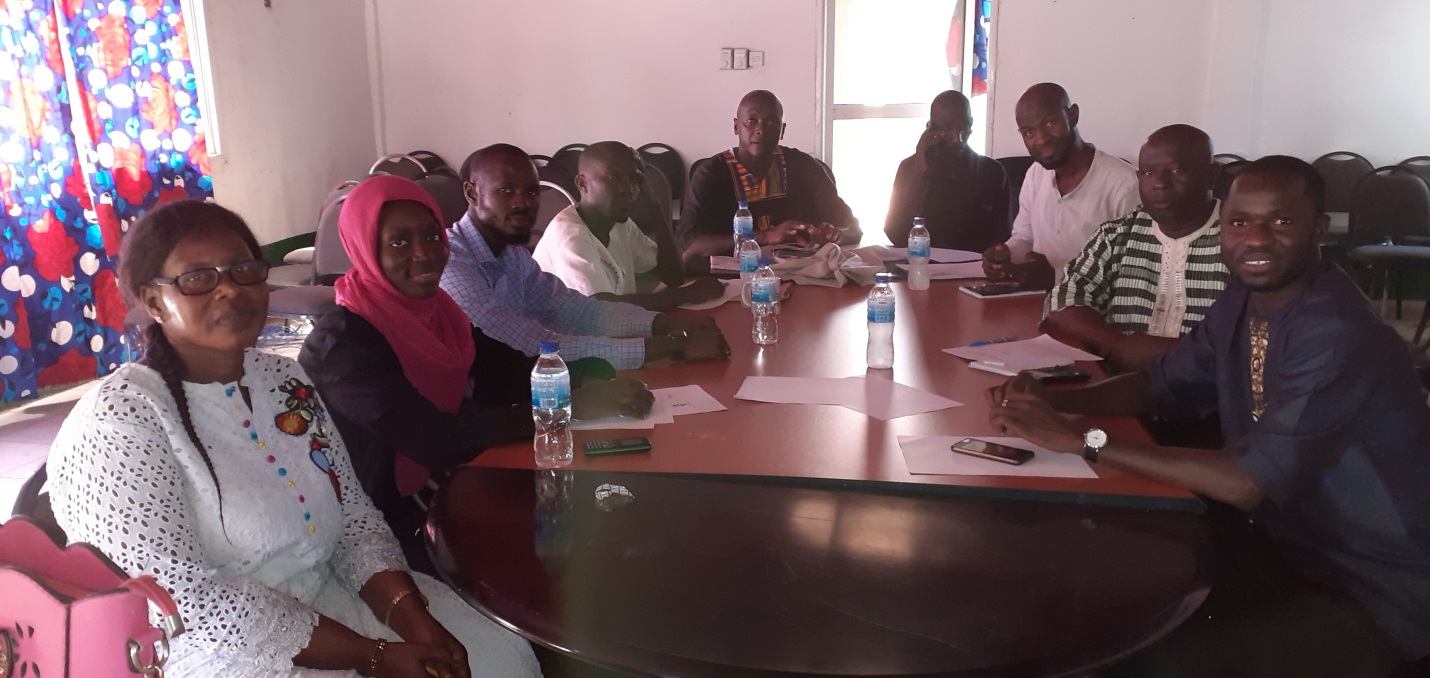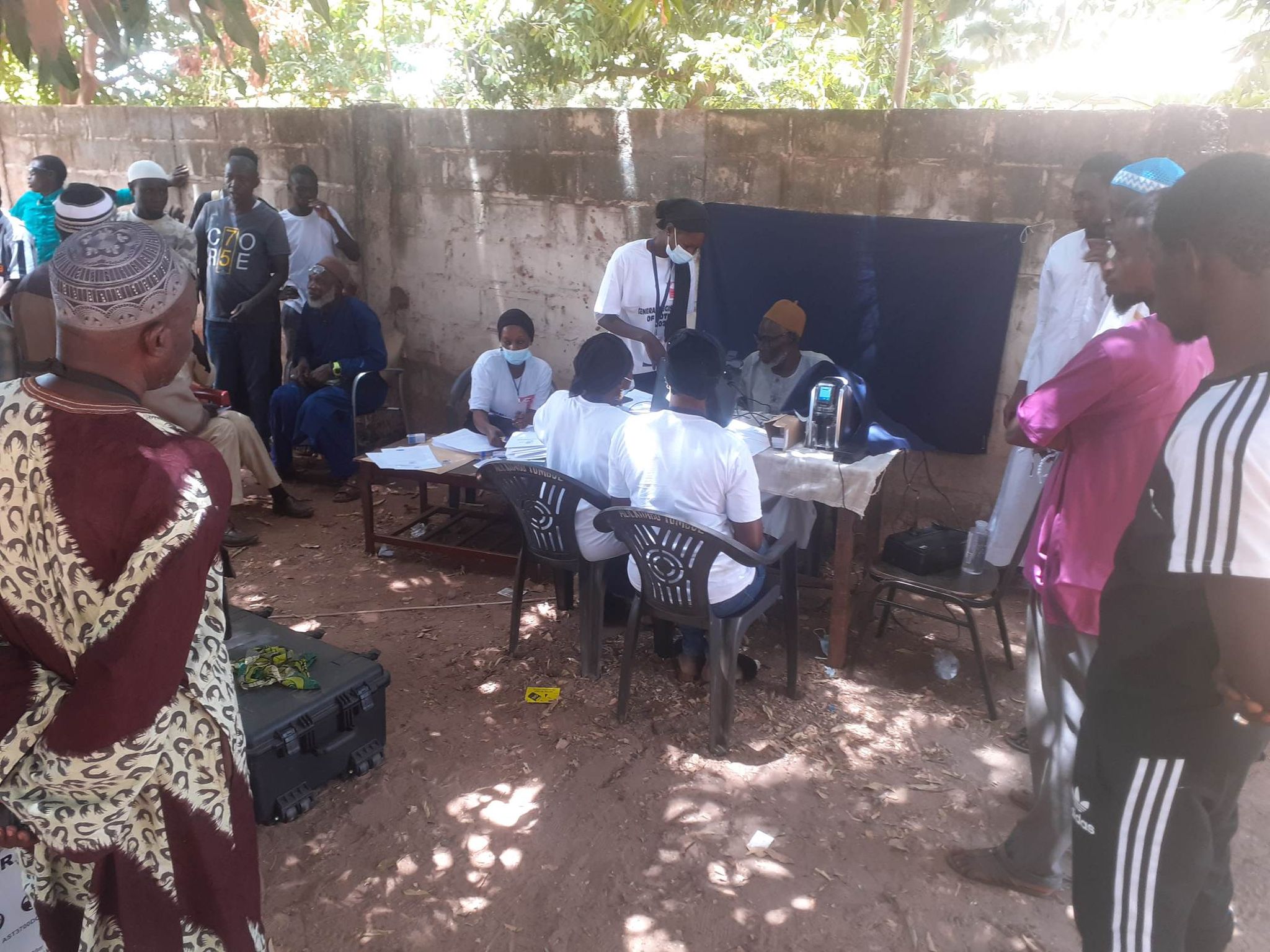By Yunus S Saliu
The director of the Curriculum Research Evaluation and Development Directorate (CREDD) under the Ministry of Basic and Senior Education has applauded at least 43 school principals for their commitment and dedication towards the Comprehensive Health Education project (CHE).
Madam Fatou Cham Bittaye, speaking on behalf of the director of CREDD, Momodou Jeng at the dissemination of Midline Research Finding of the Comprehensive Health Education held on Thursday, 3 August 2023 at NaNA Conference Hall, acknowledged that the CHE project is not new to the principals thus “we started it together way back in 2020 as your schools were selected and again, we are thanking you for allowing us to use your students, school grounds, and yourselves, principal, for our research findings. And without you people we might not have been here today.”
Madam admonished stakeholders not to be left behind on CHE saying “We need to help and assist these students to know what exactly they want and suppose to do to take care of themselves. And you as principals of those schools have helped the CHE project to achieve up to the stages we are at today, on that note I thank you very well and hoped that the cordial relationship will continue. Together we will take our adolescent children to the stage of no fear.”
Delivering a presentation on the project, Ms. Ina Phebian Grant Signia, the Principal Investigator for the CHE project said there are policy frameworks regarding CHE in The Gambia, “but there is limited evidence of implementation, and also very little is known about how efforts related to CHE are coordinated across various partners.”
The Gambia, she said, had been using the school curriculum to deal with high population growth rates, adolescent pregnancy and illegal abortion, drug abuse, high infant and maternal mortality rates, Sexually Transmitted Infections (STIs), HIV AIDs, and Environmental degradation.
She added that this critical youth sexual and reproductive health led in 2017 to the re-orientation of the Population and Family Life Education (POP/FLE) with the adoption of new international standards promoting comprehensive sexuality education.
Also, she noted it has resulted in the development of a Curriculum Framework on CSE by the Curriculum Directorate of the Ministry of Basic and Secondary Education (MoBSE). The Curriculum Framework is comprised of various themes such as Bodies, Puberty, and Reproduction; Interpersonal Relations and Communication; Society and culture; Factors of Vulnerability; Sexual and Reproductive Health; Gender; Human rights for sexual and reproductive health and well-being, and Guidance and Counselling.
Dr. Thomas Senghore and Dr. Hamidu Jallow made presentations on the Quantitative and Qualitative findings of the CHE project respectively.
Presenting a summary of the findings, they stated that 1505 students were involved in the survey and about two-thirds were female and more than 15 years mainly from public schools.
According to them, the teachers involved in the survey were those teaching subjects such as Health Science, General Science, Home Science, Physical Education, Social and Environmental Studies, and Biology.
And out of the 128 teachers surveyed, 66.4% were males and they are mainly classroom teachers. The 43 principals involved in the evaluation were mostly males and most spent less than 10 years as principals in the current schools.
Each of these four days hosted a different group of stakeholders to allow full participation from every invited and selected representative of different institutions and organizations.
The daylong forum was used to present to the school principals the result of the midline research findings and as well used to discuss and make recommendations that will better improve the implementation of strengthening access to quality Comprehensive Health Education in The Gambia for adolescent children.




